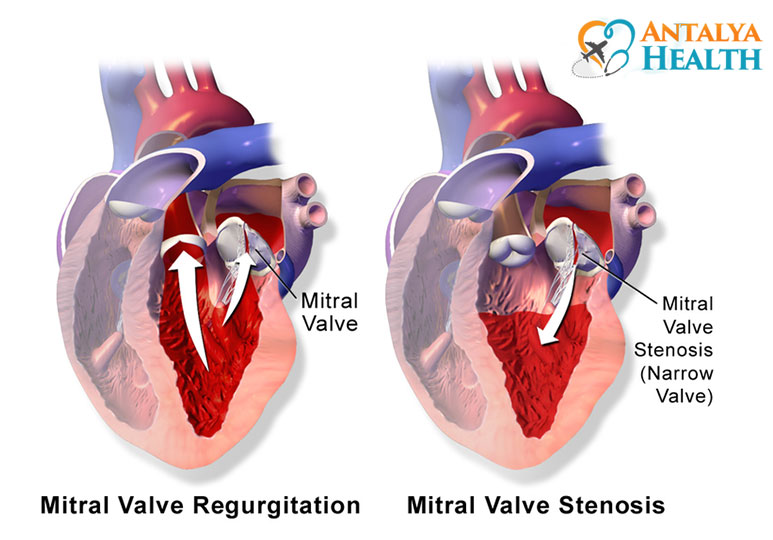
Diseases of the mitral valve often lead to heart failure, necessitating repair or replacement of the valve. Some of the most common mitral valve repair complications include infection, blood clots, and negative reactions to the anesthesia used during the operation.

I don’t think that there are so many complications because we all do know that mitral valve repair procedure is the most common procedure.the mitral valve is the most commonly repaired heart valve, but the aortic, pulmonic, and tricuspid valves may also undergo some of these repair techniques.
Mitral valve repair surgery complications. The possible complications of mitral valve repair surgery include the following: There followed an increasing trend towards mitral valve replacement in the 1960s with the introduction of mechanical valves and homografts. Mitral valve repair is the recommended surgical therapy for all prolapsing degenerative mitral valves.
Possible complications problems from the procedure are rare, but all procedures have some risk. Additional minor complications are minor bleeding as well as bruising of the operated area. Mitral valve replacement risks and complications.
Some of the most common mitral valve repair complications include infection, blood clots, and negative reactions to the anesthesia used during the operation. The complications derived from procedure were a minor bleeding and a. Complications following pascal transcatheter mitral valve repair system implantation.
All prolapsing valves are repairable while using minimally invasive surgical techniques. Major complications of mitral valve replacement surgery are more serious and include bleeding, stroke, heart attack, or even loss of life. As a result, questions arise in the patient�s mind like:
In a mitral valve replacement, a durable replacement for a severely damaged valve may be used and inserted during surgery. What are the common heart valve surgery complications? am i experiencing a complication that is not normal? If you have symptoms of mitral valve disease, your doctor may discuss surgery with you.
It increases the quality of life of the patient. Problems with it can affect how blood flows around the body. Replacement of the mitral valve results in reversal of the symptoms of heart failure and restores an individual to health.
Mitral valve replacement should not be an option. Surgery to repair the mitral valve of the heart is considered to be a relatively safe medical procedure, although complications may sometimes arise. On wednesday 8/12 for a mitral valve repair.
Sometime, mechanical valves are used in these procedures and they are associated with a much greater risk of developing blood clots, thus the use of anticoagulant medication often follows. Its replacement is performed in case of mitral valve stenosis or mitral valve regurgitation. Again there are different options for replacing the mitral valve (please refer to the section types of valves for replacement).
Blood flows from the lungs and enters a pumping chamber of the heart called the left atrium. Bleeding during or after the surgery blood clots that can cause heart attack, stroke, or lung problems Mitral valve repair is the recommended surgical therapy for all prolapsing degenerative mitral valves.
Mitral valve replacement should not be an option. The recovery may take quite some time and it is important to take the medicines as prescribed by the doctor. Mitral valve surgery is surgery to either repair or replace the mitral valve in your heart.
Examples of minor mitral valve replacement complications include nausea and vomiting, allergic skin reaction, and minor bleeding or bruising. Surgical implantation of a complete or incomplete ring to reduce the mitral valve annulus and improve leaflet coaptation is the foundation of valve repair for. Stenosis can occur when leaflets become thick, stiff, or fused together.
This prevents blood from flowing forward effectively. Minor complications after mitral valve replacement surgery are nausea and vomiting and potential infection, usually of the incision site or the tissues nearby iv lines, wires and tubes. Infections are also possible after mitral valve replacement.
The mitral valve replacement surgery is a major surgery done when the valve cannot be repaired anymore. Mitral valve surgery was first attempted in the early 1920s for repair of mitral stenosis. The mitral valve is a small flap in the heart that stops blood flowing the wrong way.
It is also indicated in case of severe mitral valve prolapse. All prolapsing valves are repairable while using minimally invasive surgical techniques. The surgical procedure is done by a cardiac surgeon.
Nausea and vomiting can be classified as minor complications of this surgery and they are basically related to side effects of anesthesia. Diseases of the mitral valve often lead to heart failure, necessitating repair or replacement of the valve. Regular exercise and heart healthy food may be.
The main problems that affect the mitral valve are: Symptoms can include fatigue, shortness of breath, irregular heartbeats, and a heart murmur. The complications are similar to cabg plus the new valve may leak and the chances of having a stroke are slightly higher.
I don’t think that there are so many complications because we all do know that mitral valve repair procedure is the most common procedure.the mitral valve is the most commonly repaired heart valve, but the aortic, pulmonic, and tricuspid valves may also undergo some of these repair techniques. The mitral valve is located between these two chambers. Rheumatic fever, other infections, defects at birth, and wear and tear are the most common causes of mitral valve problems.
The blood then flows into the final pumping chamber of the heart called the left ventricle.